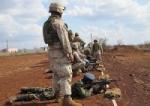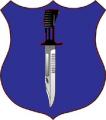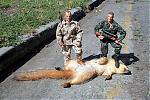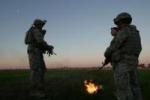Understand. Point was that many armies discount or completely ignore relevant experience until someone else remainds them none too gently. No issues with the long stretch of colonial brush wars with one exception. The 2nd Boer had many of the elements of the Great War to come.
As a historian and a lessons learned guy, I have come to believe that militaries don't really learn until blood is spilled. A lesson not paid for is not a lesson--it's that "history stuff". I actually had that one tossed at me by a flag officer several years ago regarding convoys and convoy security TTPs.
That is why--and I know Wilf will appreciate this one--it is inevitable and often necessary to cloak the old in the new so folks will listen.
Best
Tom

















Bookmarks